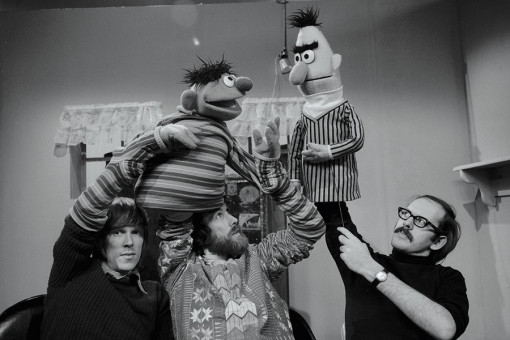When Aline Brosh McKenna included original music in the pilot of Crazy Ex-Girlfriend, it set in motion a pace that is simply, well, crazy.
“I thought, ‘We did it for the pilot — we’ll just keep doing it every week,’” says McKenna, co-creator, executive producer, writer and showrunner. Since then, the CW series has had two or three original songs per episode — a feat few showrunners would attempt.
“I didn’t realize it couldn’t be done,” she says in retrospect. “But we’re doing it.”
After two seasons, McKenna and her team have it down to a science.
Planning ahead is essential, to give the songwriters — Rachel Bloom (co-creator, executive producer, writer and star), Adam Schlesinger (executive music producer) and Jack Dolgen (writer and coproducer) — a chance to stockpile songs.
“We’ve done 82 songs in the first two seasons — that has not been done on television before,” says Bloom, who plays the lovesick Rebecca. “That could not happen without Adam and Jack. They’re both such amazing songwriters.
“There’s really good quality control,” she continues, “because everyone is looking at the songs. We all have different tastes and come at songwriting from slightly different angles, so nobody is writing in a vacuum. Unless a song comes in perfect, everyone has input.”
McKenna — who says she’s not a songwriter, but has songwriting credit on several songs — calls Dolgen a rock-and-roll guy, describes Bloom as “a musical comedy lover who pretends to be into pop music” and points out that Schlesinger, an Emmy and Grammy winner, has been nominated for an Oscar and a Tony and played bass in the band Fountains of Wayne.
“I’ll come up with an idea or a few lines, and they’ll run with it,” McKenna explains. “Once we were talking about the script, and I said to Rachel and Jack, ‘Right here we can use a song where they say something like, We definitely should not have sex right now. A half hour later they’d written the song ‘We Definitely Should Not Have Sex Right Now.’”
It doesn’t always come that easily. When Santino Fontana (who played Greg, a bartender) was leaving the show, they scrapped nearly 10 songs before Bloom got permission from the CW for Greg to curse, as long as it was bleeped. The uncensored online version of “It Was a S—t Show” has drawn hundreds of thousands of views.
They’ve covered show tunes, ‘80s power ballads, heavy metal, torch songs, even barbershop quartets. Deciding a song’s genre helps inform the comedic angle, Dolgen says.
“Sometimes it’s obvious what the song parody is,” Schlesinger says. “Other times it starts in one place and ends up somewhere else, so people can’t quite figure out what we started with.”
The piano riff in Greg’s season-one ballad, “What’ll It Be,” echoes Billy Joel’s “Piano Man,” but it became dramatic, not a comedic parody. “‘What’ll It Be’ not only is what a bartender says, but it also is a metaphor for his life,” Bloom says. “That taught me a lot about finding the perfect title, or thesis statement, for a song."
Songs can be inspired by performers, too. Vincent Rodriguez III (who plays Josh Chan) is an acrobat and martial artist, so those skills found their way into one of his songs, “Angry Mad.” Fontana’s classic crooner voice led to the Fred-and-Ginger inspired dance number “Settle for Me,” and Broadway powerhouse Donna Lynne Champlin (who plays Paula) belts out whatever they throw at her. “She has one of the best voices I’ve ever heard,” Bloom says.
Occasionally a song arrives fully formed, like season-two’s big production number, “The Math of Love Triangles.”
“That song was completely formed in Rachel’s head before I heard about it,” Schlesinger says. The trick was finding the comedic hook — math puns go only so far.
In another season-two episode, a song was written to celebrate the Santa Ana winds, which appear in human form (guest star Eric Michael Roy) and recur throughout the story.
“This was an example of using comedy songs to move the story forward,” Bloom says. “It was a fun way to marry story structure and songwriting.”
Dolgen credits Schlesinger and his music production partner, Steven Gold, with making it possible to write so many songs, across so many genres, so quickly. “We have total songwriting freedom,” he says, “because their abilities are infinite.”
This article originally appeared in emmy magazine, Issue No. 5, 2017












